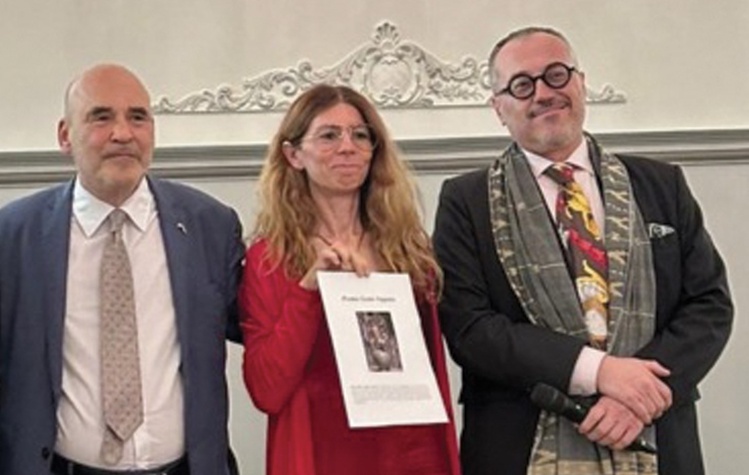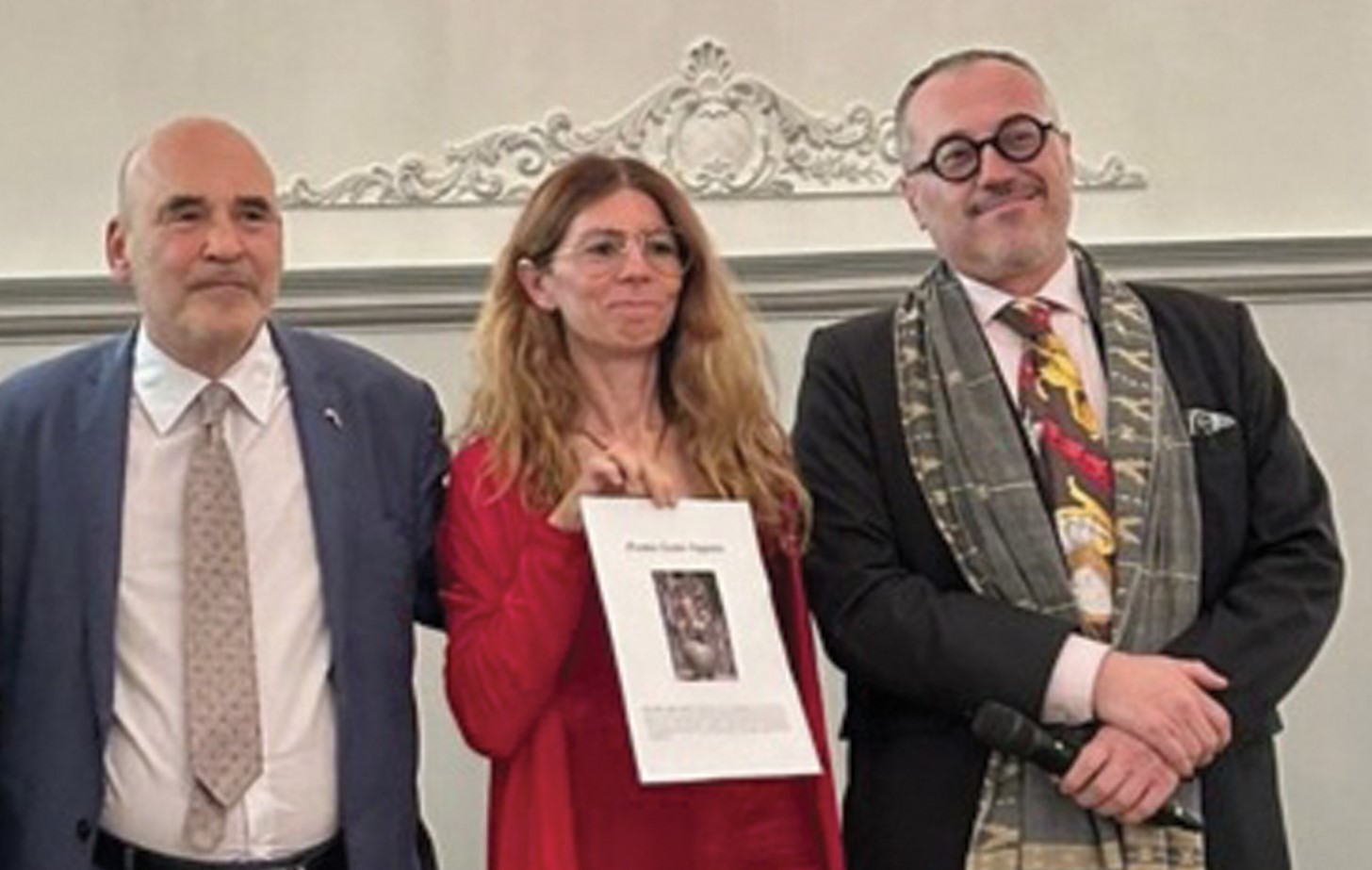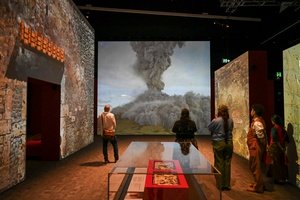Established by the Vittoriale degli Italiani Foundation in 2017, the award honours talented Italians who have brought prestige to their homeland through exceptional work abroad.
This prize celebrates “brain drains” - talented individuals who, while living and working outside Italy, maintain cultural and professional ties with their homeland, thereby enriching Italy’s heritage with their achievements.
This year, the prestigious award went to astrophysicist Orsola De Marco for her outstanding contributions to science and her role as a representative of Italian excellence abroad.
Among those at the ceremony was Giordano Bruno Guerri, president of the Vittoriale degli Italiani Foundation, who acknowledged De Marco’s important contributions to the scientific community.
In conversation, De Marco - a professor at the School of Mathematical and Physical Sciences and the Research Centre for Astronomy, Astrophysics and Space Technologies at Macquarie University in Sydney - revealed herself to be not only passionate about her field but also deeply aware of the importance of inspiring and imparting knowledge to the next generation.
Despite a stellar career that has taken her to Zurich, New York, London and Sydney, De Marco approached the award with humility.
“I was a bit surprised when I received the prize,” she shared, noting that the selection process had been unexpected, given the large number of Italians working in various scientific fields abroad.
Nevertheless, De Marco accepted the award gratefully, recognising her place among those who have dedicated their lives to science.
“Teaching is the most important thing at this point because when you manage to inspire this passion in the next generation, it’s truly a success,” she said.
“Also, giving back to your community - in this case, the astronomical community - is essential.
“When you reach a certain stage in your career, with a name, age and experience, it becomes vital to give back to both the community and society.”
De Marco fondly recalls how, even as a child, she was drawn to discovering the unknown.
“My mother always said I had my head in the stars. I don’t remember ever having any other passion outside my work,” she revealed.
This early interest blossomed into a career that has not only expanded our understanding of the universe but has also left an indelible mark on young scientists’ training.
Despite the progress made, astronomy still faces many unanswered questions, including the nature of dark matter and dark energy, which make up 96 per cent of the universe.
“There’s so much hidden stuff, and it will be a focus of research for the next hundred years,” she said enthusiastically.
For De Marco, science is an ongoing exploration, and she is eager to lead the next generation of astronomers towards these intriguing, mysterious cosmic forces.
Basic science, even though it may not produce immediate benefits, is essential for long-term scientific progress.
“Unlike applied science - like the practical use of lasers - basic science explores fundamental concepts such as quantum mechanics, [the] benefits [of which] only become apparent decades later,” she explained.
She warns that if we only invest in science with immediate returns, we risk a knowledge gap for future generations.
Furthermore, astronomical research, though aimed at non-immediate applications, has produced technologies now present in other industries.
“Quantum theory, for instance, once seemed esoteric, yet it led to the development of quantum computers, which could revolutionise the future,” she reminded those present.
De Marco adds that astronomy not only produces discoveries but also inspires and promotes international cooperation, acting as a form of soft power.
“Soft power,” she explained, “is science’s ability to influence the world not through military or political force but through collaboration, curiosity and discovery.
“In a world full of conflict, being in an international setting where people focus on science rather than disputes is a powerful starting point.”












